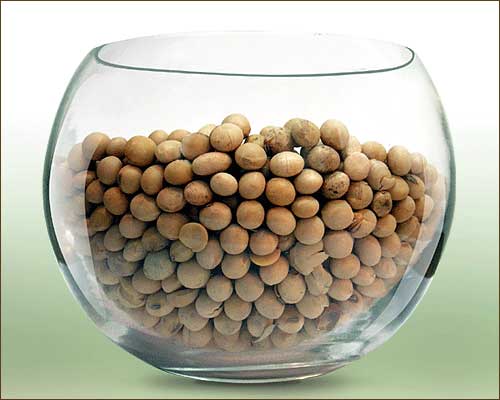U.S. farmers already hurt by the tariffs spat with China are now contending with a big-time drop in how much they get for damaged soybeans after a wetter-than-usual harvest.
Cargill Inc., Louis Dreyfus Co., Archer-Daniels-Midland Co. and CGB Enterprises have tightened guidelines on the quality of beans accepted at some grain elevators in the lower Mississippi River Delta region, according to documents seen by Bloomberg. In one case, farmers could face rejection if damage is above 3 percent, down from 10 percent previously.
President Donald Trump’s trade war with China eliminated a key customer base for American soybeans. With U.S. grain elevators filling up, traders are now finding it tougher to blend in damaged beans and keep to export specifications, spurring the changes. The size of the swings, though, caught growers off guard, with the topic being discussed at a meeting of Arkansas legislators last month.
"There’s no dispute that there are damage issues," said Andrew Grobmyer, executive vice president at the Agricultural Council of Arkansas, who testified at the meeting. "It’s really just the inconsistencies year to year. The fact that they escalated the discounts so much so quickly, and farmers weren’t really anticipating that factor."
Increased Everywhere
The discounts for damaged soybeans have been increased “everywhere as far as I know," Grobmyer said by telephone. "It’s a way, if you will, for the merchants to send a signal to the farmers that they are running out of storage or that the business is not moving and the grain isn’t going where it needs to."
Grobmyer was among 15 people who spoke during the Oct. 18 meeting. While growers’ contracts with elevators allow for changes to discounts without notice, this season’s swings have been bigger than usual, he said.
The criteria for determining the damage discount is complex, with charts showing different deductions depending on the percentage of defects. Some traders have also reduced the percentage of defects at which they can reject full cargoes.
Growers in Arkansas also expressed concerns about how traders discovered damaged. While each company inspects their own grain following federal guidelines, both Grobmyer and Mark McElroy, a member of the Arkansas House of Representatives, said farmers reported inconsistencies in grading of their soybeans from one elevator to the next.
During the Oct. 18 session, Ronald Caldwell, a Republican state senator, urged Wes Ward, the state’s agriculture secretary, to contact nearby states and U.S. legislators on the farmer concerns.
CGB, owned by Japanese traders Itochu Corp. and Zen-Noh Grain Corp., adjusted its discounts to damaged product for its Osceola, West Memphis, Helena North and Old Town elevators in Arkansas and the Mississippi state facilities of Tunica and Friars Point, according to an Oct. 19 email to growers from company managers Rob LaFollette and Ed Ide.
“The current tariff situation with China has driven bean exports lower than we have seen in past years," the two men wrote, “When combined with the widespread bean damage being harvested out of the lower Mississippi River Delta, the Gulf export market has had trouble working through the quality issues."
"We understand that when there’s damage, there’s going to be a monetary penalty for it, but that penalty shouldn’t triple from one year to the next," McElroy said in a telephone interview. "Damage is damage."




